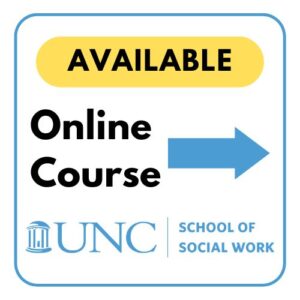
Description:
This workshop integrates lessons from hip hop, the most listened to genre in the U.S., into psychotherapeutic practice, to enhance practitioners’ repertoire for helping clients. Participants will increase their familiarity with the hip hop tradition, its cultural context and role in documenting injustice (e.g., mass incarceration, police brutality, poverty) and as a calculated effort to negotiate and cope with psychological and physiological stressors, particularly of African American males. Participants will engage with content from this genre as a means for critical self-reflection. Participants will also be encouraged to pursue further knowledge of hip hop as a way to enhance rapport and assessment, deconstruct power dynamics, and contribute to the validation and empowerment of clients who have a relationship with hip hop as well as with others who may identify with its underlying themes.
Andrew Watkins, MSW, LCSWA, a clinical social worker and community resource coordinator at North Carolina Agricultural and Technical (A&T) State University, is the founder of “The Cypher” a psycho-educational group that utilizes hip hop as an intervention tool in educating participants about basic psychoeducation concepts. Andrew has facilitated this group in multiple settings and conducts trainings for professionals on ways to incorporate Hip Hop into social work practice. As a clinician, Andrew focuses on culturally competent interventions to assist clients in overcoming emotional challenges. Prior to joining A&T, he conducted intensive in-home treatment, served as team lead in multi-system therapy team, and has worked in special projects with youths and families aimed at character development and academic achievement.
References:
- Bryant-Davis, T., Adams, T., Alejandre, A., & Gray, A. A. (2017). The trauma lens of police violence against racial and ethnic minorities. Journal of Social Issues, 73(4), 852-871. https://doi.org/10.1111/josi.12251
- Crawford, M. R., Grant, N. S., & Crews, D. A. (2016). Relationships and rap: Using ecomaps to explore the stories of youth who rap. The British Journal of Social Work, 46(1), 239-256. doi:10.1093/bjsw/bcu096
- Elligan, D. (2012). Contextualizing rap music as a means of incorporating into psychotherapy. In S. Hadley & G. Yancy (Eds.) Therapeutic uses of rap and hip hop. (pp. 69-80). Routledge. https://doi.org/10.4324/9780203806012-9
- Estreet, A. T., Archibald, P., Goodman, S., & Cudjoe, T. (2017). Using a client-centered approach to guide the development of a culturally-specific hip-hop intervention for African American adolescent substance users. Reflections: Narratives of Professional Helping, 23(4), 48-66.
- Fletcher, J. S. (2018). Rap in music therapy with Appalachian youth with adverse childhood experiences. Voices: A World Forum for Music Therapy, 18(4). https://doi.org/10.15845/voices.v18i4.2591
- Heath, T., & Arroyo, P. (2014). ‘I gracefully grab a pen and embrace it ‘: Hip-hop lyrics as a means for re-authoring and therapeutic change. International Journal of Narrative Therapy and Community Work, (3), 31-38.
- Kobin, C., & Tyson, E. (2006). Thematic analysis of hip-hop music: Can hip-hop in therapy facilitate empathic connections when working with clients in urban settings? Arts in Psychotherapy, 33(4), 343-356. https://doi.org/10.1016/j.aip.2006.05.001
- Koivisto, M. O. (2018). “I know you think I’m crazy”: Post-horrorcore rap approaches to disability, violence, and psychotherapy. Disability Studies Quarterly, 38(2) https://doi.org/10.18061/dsq.v38i2.6231
- Levy, I. P., & Adjapong, E. S. (2020). Toward culturally competent school counseling environments: Hip-hop studio construction. The Professional Counselor (Greensboro, N.C.), 10(2), 266-284. doi:10.15241/ipl.10.2.266
- Liu, S., Chow, H. M., Xu, Y., Erkkinen, M. G., Swett, K. E., Eagle, M. W., . . . Braun, A. R. (2012). Neural correlates of lyrical improvisation: An fMRI study of freestyle rap. Scientific Reports, 2(1), 834. doi:10.1038/srep00834
- Richards, A., Hoskin, N. M., Maddox, R. P., II, & Cornelius-White, J. H. D. (2019). A qualitative study of group therapy incorporating rap music with incarcerated individuals. Journal of Creativity in Mental Health, 14(4), 478. https://doi.org/10.1080/15401383.2019.1632235
- Sule, A., & Inkster, B. (2014). A hip-hop state of mind. The Lancet. Psychiatry, 1(7), 494-495. doi:10.1016/S2215-0366(14)00063-7
- Travis, R., & Deepak, A. (2011). Empowerment in context: Lessons from hip-hop culture for social work practice. Journal of Ethnic & Cultural Diversity in Social Work, 20(3), 203-222. doi:10.1080/15313204.2011.594993
- Travis, R. (2013). Rap music and the empowerment of Today’s youth: Evidence in everyday music listening, music therapy, and commercial rap music. Child & Adolescent Social Work Journal, 30(2), 139-167. doi:10.1007/s10560-012-0285-x
- Washington, A. R. (2018). Integrating Hip‐Hop culture and rap music into social justice counseling with black males. Journal of Counseling & Development, 96(1), 97-105. https://doi.org/10.1002/jcad.12181
